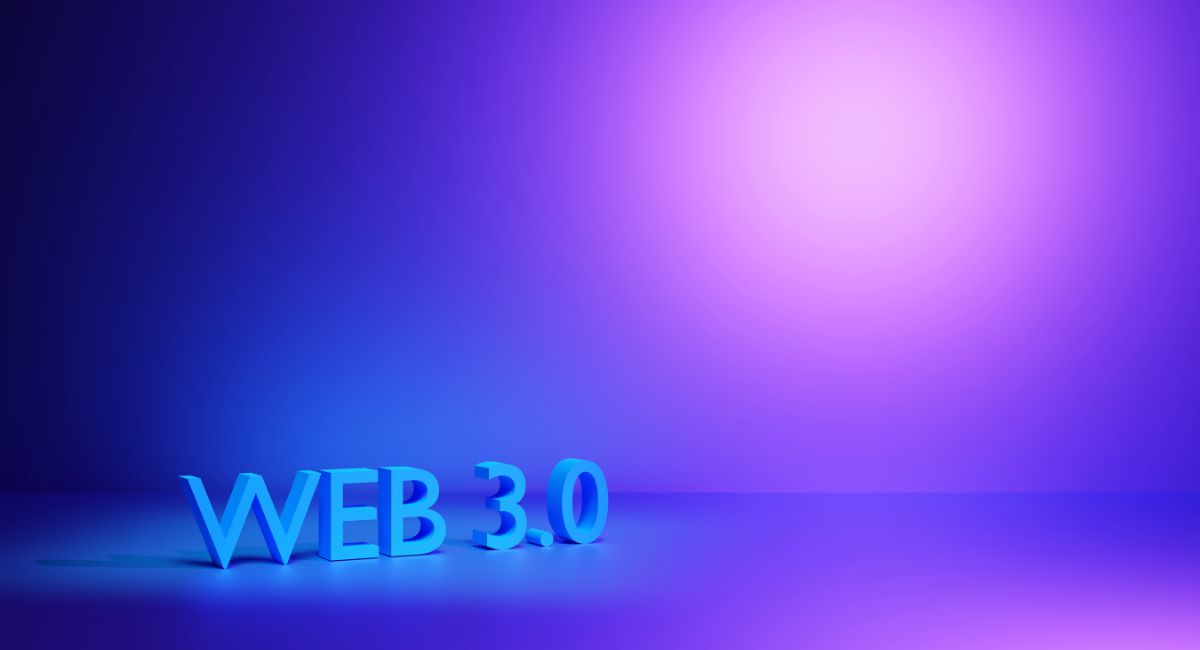Top 10 Places Leveraging The Power Of Web3 Technologies
The power of Web3 technologies are being leveraged in various sectors and industries around the world. Web3 technologies, also known as the decentralized web or the blockchain web, represent the next evolution of the internet. While Web 1.0 was primarily focused on static web pages and Web 2.0 on user-generated content and social networking, Web3 is characterized by decentralized systems, peer-to-peer networks, and the use of blockchain technology.
The development of Web3 technologies began with the creation of Bitcoin, the first decentralized cryptocurrency, in 2009. Bitcoin’s success inspired the creation of other cryptocurrencies and blockchain platforms, including Ethereum, which introduced the concept of smart contracts and enabled the creation of decentralized applications (dApps).
Web3 technologies offer several key advantages over traditional web technologies. These include:
- Decentralization – Web3 technologies are decentralized, meaning a single entity or organization does not control them. This provides greater security, transparency, and resilience compared to centralized systems.
- Security – Web3 technologies use cryptography and other security measures to protect data and assets from cyber-attacks, fraud, and other security threats.
- Trust – Web3 technologies enable trustless interactions, meaning users can transact with each other without the need for intermediaries such as banks or payment processors.
- Privacy – Web3 technologies provide greater privacy and anonymity compared to traditional web technologies, enabling users to protect their data and identity.
Web3 technologies are being developed and implemented in various industries and sectors, including finance, gaming, supply chain management, and social media. Decentralized finance (DeFi) is one of the fastest-growing areas of Web3 development, with platforms such as Uniswap, MakerDAO, and Compound enabling users to borrow, lend, and trade cryptocurrencies without the need for intermediaries.
Other notable Web3 projects include Filecoin, a decentralized storage network; Brave, a privacy-focused Web3 browser; and The Graph, a decentralized indexing and querying protocol.
Despite the many benefits of Web3 technologies, there are also challenges and limitations to their development and adoption. These include scalability issues, regulatory challenges, and user adoption. However, as Web3 technologies continue to mature and evolve, we can expect to see greater adoption and integration into our daily lives, transforming the way we interact with the internet and each other.
9 Projects You Can Do to Become a Web3 and Blockchain Master
– Ethereum Wallet
– Decentralized Blog
– Time lock Wallet
– NFT collection
– Transparent Charity System
– NFT Music Application
– Peer To Peer Carpooling
– Blockchain-Based Voting App
– Web Hosting App
— Suhail Kakar (@SuhailKakar) April 19, 2023
Here are 10 places that are leading the charge in harnessing the power of Web3:
- Ethereum – Ethereum is one of the most popular blockchain platforms, known for its ability to support smart contracts and decentralized applications (dApps). It is being used by many decentralized finance (DeFi) platforms and other Web3 projects.
- Uniswap – Uniswap is a decentralized exchange (DEX) built on the Ethereum blockchain. It enables users to swap cryptocurrencies without the need for intermediaries such as exchanges.
- OpenSea – OpenSea is a decentralized marketplace for buying, selling, and trading non-fungible tokens (NFTs) on the Ethereum blockchain.
- CryptoKitties – CryptoKitties is a blockchain-based game that allows players to breed and trade unique digital cats on the Ethereum blockchain.
- ConsenSys – ConsenSys is a blockchain software company that provides enterprise solutions, dApps, and other Web3 services.
- Brave – Brave is a Web3 browser that aims to provide users with a faster, more private, and more secure browsing experience.
- Filecoin – Filecoin is a decentralized storage network that allows users to rent out unused storage space on their computers in exchange for cryptocurrency.
- MakerDAO – MakerDAO is a decentralized lending platform built on the Ethereum blockchain. It enables users to borrow cryptocurrency using other cryptocurrencies as collateral.
- Chainlink – Chainlink is a decentralized oracle network that connects smart contracts to real-world data and events.
- The Graph – The Graph is a decentralized indexing and querying protocol that allows developers to easily access blockchain data and build dApps on top of it.
These are just a few examples of the many places that are leveraging the power of Web3 technologies to create new business models, provide innovative solutions, and disrupt traditional industries. As the Web3 ecosystem continues to grow, we can expect to see more companies and organizations adopting these technologies to drive innovation and create value.
Also, read – How Is Web3 Changing The Publishing Industry
How the power of web3 technologies will change how we operate
- Decentralization – Web3 technologies enable decentralization, meaning that power is distributed among users instead of being concentrated in the hands of a few centralized entities. This could lead to a more democratic and equitable society, with greater opportunities for individuals to participate and contribute.
- Security – Web3 technologies provide a high level of security, with cryptographic protocols and decentralized systems protecting data and assets from hacking, cyber-attacks, and other forms of fraud. This could lead to greater trust and confidence in online transactions and interactions.
- Transparency – Web3 technologies enable greater transparency, with blockchain ledgers providing a tamper-proof record of all transactions. This could lead to greater accountability and reduced corruption in various industries, including finance and supply chain management.
- Innovation – Web3 technologies enable innovation, with decentralized systems and open-source development communities fostering creativity and experimentation. This could lead to the creation of new business models, services, and products that were previously impossible or impractical.
- User control – Web3 technologies give users greater control over their data and identity, enabling them to protect their privacy and prevent unauthorized use of their information. This could lead to greater user empowerment and a shift away from the centralized models of data control that currently dominate many industries.
- New opportunities – Web3 technologies open up new opportunities for participation and economic activity, with decentralized finance, non-fungible tokens (NFTs), and other Web3 innovations creating new markets and ways of doing business.
Overall, the power of Web3 technologies is expected to transform how we operate in many aspects of our lives, from finance and commerce to social media and governance. As these technologies continue to mature and gain wider adoption, we can expect to see new business models, services, and products emerge, creating a more equitable, transparent, and innovative society.
Web3 is not just about technology, it’s about the future of humanity and our ability to create a better world. pic.twitter.com/oYHU0iLT4b
— Blanka.eth (@Blankaeth) April 19, 2023
Conclusion
The adoption of Web3 technologies is transforming how we operate in various industries and sectors, offering numerous benefits and opportunities for innovation and growth. As these technologies continue to mature and evolve, we can expect to see even more businesses and organizations leveraging their power, creating a more decentralized, transparent, and equitable society.
One of the key benefits of Web3 technologies is their ability to promote decentralization and empower individuals. This is particularly important in industries that have traditionally been dominated by centralized entities, such as finance, social media, and supply chain management. Web3 technologies enable users to interact with each other directly, without the need for intermediaries or centralized gatekeepers. This can lead to a more democratic and equitable society, with greater opportunities for individuals to participate and contribute.
Web3 technologies also offer significant advantages in terms of security and transparency. With blockchain ledgers and decentralized systems, data and assets are protected from hacking, cyber-attacks, and other forms of fraud. This can lead to greater trust and confidence in online transactions and interactions, and reduce the risk of data breaches and identity theft.
Another benefit of Web3 technologies is their ability to foster innovation and experimentation. Decentralized systems and open-source development communities create an environment that encourages creativity and collaboration, leading to the creation of new business models, services, and products that were previously impossible or impractical.
Overall, the adoption of Web3 technologies is transforming how we operate in various industries and sectors, offering numerous benefits and opportunities for innovation and growth. As these technologies continue to evolve and gain wider adoption, we can expect to see even more businesses and organizations leveraging their power, creating a more decentralized, transparent, and equitable society. The top 10 places leveraging the power of Web3 technologies are just the beginning of what promises to be a new era of decentralized, peer-to-peer collaboration and innovation.
Stay informed with daily updates from Blockchain Magazine on Google News. Click here to follow us and mark as favorite: [Blockchain Magazine on Google News].
Get Blockchain Insights In Inbox
Stay ahead of the curve with expert analysis and market updates.
latest from tech
Disclaimer: Any post shared by a third-party agency are sponsored and Blockchain Magazine has no views on any such posts. The views and opinions expressed in this post are those of the clients and do not necessarily reflect the official policy or position of Blockchain Magazine. The information provided in this post is for informational purposes only and should not be considered as financial, investment, or professional advice. Blockchain Magazine does not endorse or promote any specific products, services, or companies mentioned in this posts. Readers are encouraged to conduct their own research and consult with a qualified professional before making any financial decisions. The featured image used is just a creative depiction of the title and it does not intend to hurt sentiments of any person or institution. If it hurts anyone sentiments, please do not hesitate to reach out to Blockchain Magazine.

 Bitcoin
Bitcoin  Ethereum
Ethereum  XRP
XRP  Tether
Tether  Solana
Solana  USDC
USDC  Dogecoin
Dogecoin  Cardano
Cardano  Lido Staked Ether
Lido Staked Ether  TRON
TRON  Wrapped Bitcoin
Wrapped Bitcoin  Chainlink
Chainlink  Wrapped stETH
Wrapped stETH  Sui
Sui  Avalanche
Avalanche  Stellar
Stellar  Shiba Inu
Shiba Inu  Hedera
Hedera  Toncoin
Toncoin  LEO Token
LEO Token  Hyperliquid
Hyperliquid  Bitget Token
Bitget Token  Litecoin
Litecoin  WETH
WETH  USDS
USDS  Polkadot
Polkadot  Bitcoin Cash
Bitcoin Cash  Ethena USDe
Ethena USDe  Wrapped eETH
Wrapped eETH  MANTRA
MANTRA  Uniswap
Uniswap  Pepe
Pepe  Ondo
Ondo  Monero
Monero  Aave
Aave  NEAR Protocol
NEAR Protocol  WhiteBIT Coin
WhiteBIT Coin  Mantle
Mantle  Official Trump
Official Trump  Aptos
Aptos  Dai
Dai  Internet Computer
Internet Computer  Ethereum Classic
Ethereum Classic  Bittensor
Bittensor  Cronos
Cronos  OKB
OKB  POL (ex-MATIC)
POL (ex-MATIC)  Gate
Gate 




